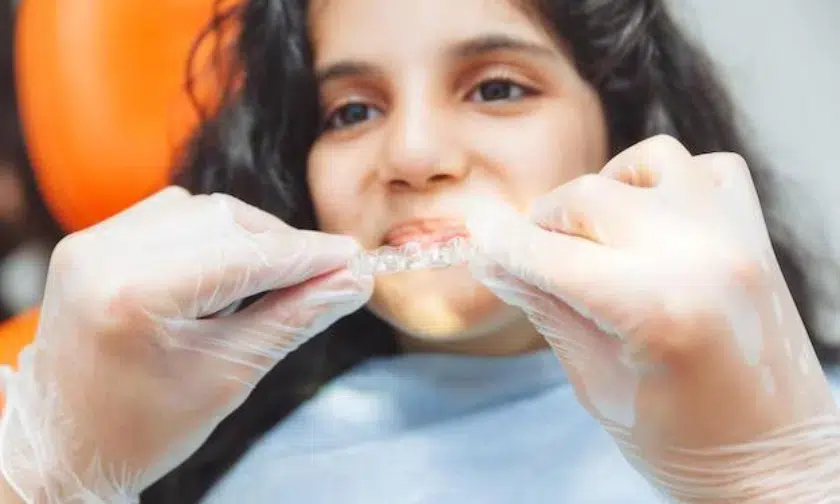817-803-8090
Early Detection & Intervention can Help Avoid Problems Later On in Life

Early Detection & Intervention can Help Avoid Problems Later On in Life
Introduction: The Importance of Early Detection & Intervention
As a parent, you want what is best for your child. You want them to be happy and to have all the opportunities that they can get in life. But sometimes, things happen that are out of our control. A child may be born with a disability or develop one later on in life. Early detection and intervention can help avoid problems later on in life.
A disability may not be obvious at birth, but there are often signs that something is not quite right. If you suspect that your child has a disability, it is important to get them assessed by a professional as soon as possible. The earlier a problem is detected, the easier it will be to treat or manage it.
Early intervention services can make a big difference in the life of a child with a disability. These services provide support and assistance to families so that they can help their child reach their full potential. Intervention can range from speech and occupational therapy to special education classes and home visits from social workers.
It is never too early to start thinking about your child’s future and how you can help them lead a happy and fulfilling life. If you have any concerns about your child’s development, don’t hesitate to seek help from professionals who specialize in early detection and intervention.
Early Warning Signs to Look Out For
Most people are familiar with the signs of physical abuse, but there are other types of abuse that are not as well-known. If you suspect that your child is being abused, it is important to trust your instincts and get help. The following are some early warning signs to look out for:
1. Changes in behavior – Is your child suddenly withdrawn or exhibiting new behaviors such as bed wetting or aggressiveness? These can be signs that something is wrong.
2. Unexplained injuries – If you notice bruises or other injuries on your child that cannot be explained, this may be a sign of abuse.
3. Fear of certain people or places – If your child seems afraid of certain adults or refuses to go to specific places, this could be an indication that they have been abused in those places.
4. Sexualized behavior – If your child starts acting out sexually in a way that is inappropriate for their age, this could be a sign of sexual abuse.
If you notice any of these warning signs, it is important to get help right away. You can contact the National Child Abuse Hotline at 1-800-4-A-CHILD (1-800-422-4453) for 24/7 assistance and resources.
Benefits of Early Detection & Intervention
There are many benefits to early detection and intervention when it comes to developmental problems in children. Early intervention can help avoid or lessen the severity of problems later on in life, including:
• Behavioral problems
• Intellectual disabilities
• Emotional difficulties
• Social skills deficits
Early detection and intervention can also help improve a child’s overall functioning in school and in life. When problems are identified early, children can receive the services and support they need to reach their full potential.
How to Ensure You Receive Early Support and Treatment
If you or your child are showing signs of a mental health disorder, it’s important to seek out early support and treatment. The sooner you get help, the better the outcome is likely to be. Here are some tips for how to ensure you receive early support and treatment:
1. Talk to your doctor: If you’re worried about yourself or your child, talk to your doctor. They can help assess whether there is a problem and, if so, refer you to a mental health professional.
2. Seek out a mental health professional: If you think you or your child may have a mental health disorder, it’s important to see a mental health professional for an assessment. They can provide an accurate diagnosis and create a treatment plan.
3. Be open and honest: When talking to your doctor or mental health professional, be open and honest about your symptoms and concerns. This will help them provide the best possible care.
4. Follow their advice: Once you’ve been assessed and diagnosed, it’s important to follow the advice of your mental health professional in terms of treatment and support. This will give you the best chance of recovery.
Conclusion: Making the Most of Early Detection & Intervention
The earlier a problem is detected and intervention begins, the greater the chance for positive outcomes. This is especially true when it comes to developmental problems in children. Developmental problems can have a ripple effect, impacting every area of life. That’s why early detection and intervention is so important.
There are many things that can be done to help a child who is struggling. If you are concerned about your child’s development, talk to your doctor or another professional. They can help you determine if there is a problem and what steps you can take to address it.
Early orthodontic treatment can make a big difference in a child’s life. It can help them avoid problems later on in life and lead to better outcomes overall.
FAQ’s
1. What are some early signs of mental health problems?
Mental health problems can manifest in a variety of ways, but some early warning signs include: withdrawing from friends and activities, talking about feeling hopeless or helpless, exhibiting extreme mood swings, abusing drugs or alcohol, becoming fixated on death or violence, and having difficulty concentrating or making decisions. If you notice any of these behaviors in yourself or someone you know, it’s important to reach out for help.
2. How can I get help for myself or someone I know who is struggling?
If you’re struggling with your mental health, the first step is to talk to your doctor. They can help assess your symptoms and connect you with resources like therapy or medication if necessary. If you’re worried about someone else, the best thing you can do is talk to them about your concerns. Showing them that you care and are there to support them can make a big difference. You can also encourage them to seek professional help if they seem open to it.
3. What kind of treatment is available for mental health problems?
There are many different types of treatment available for mental health problems, and what works best will vary from person to person. Some common options include therapy, medication, and self-care strategies like exercise and relaxation techniques. It’s important to work with a mental health professional to figure out what approach will be most helpful for you.





